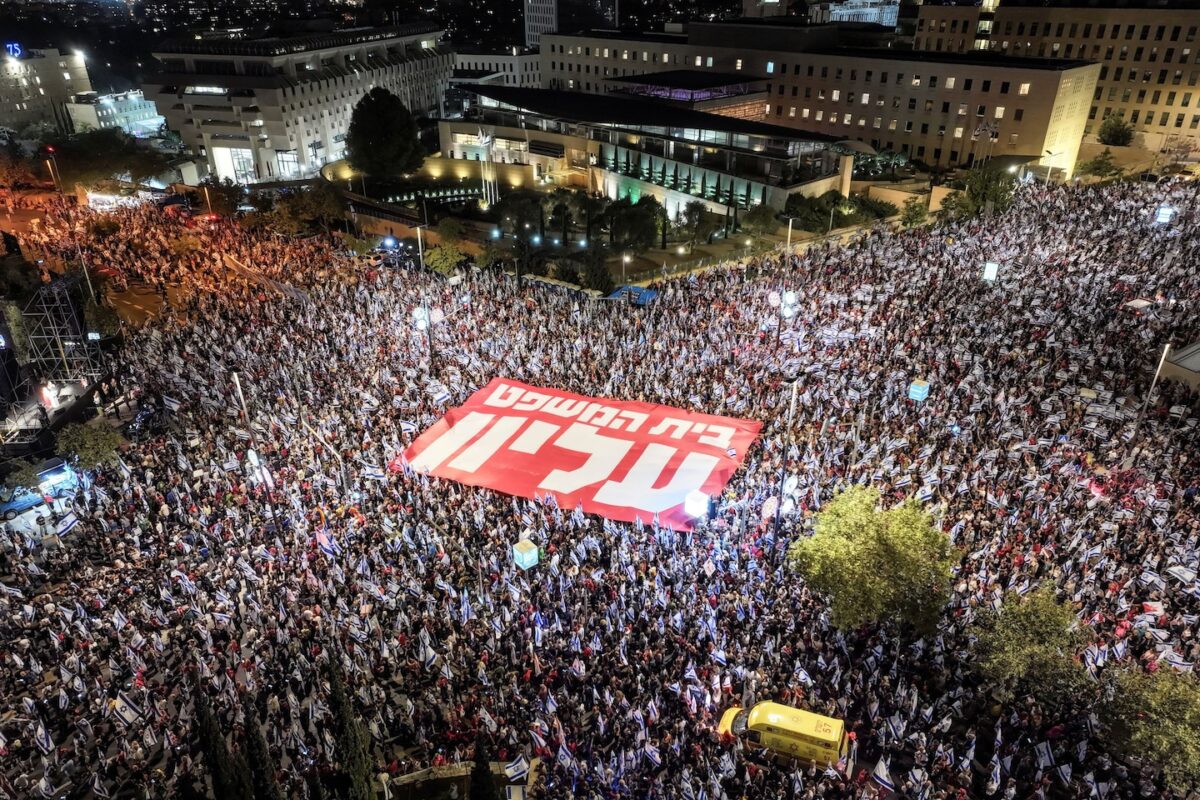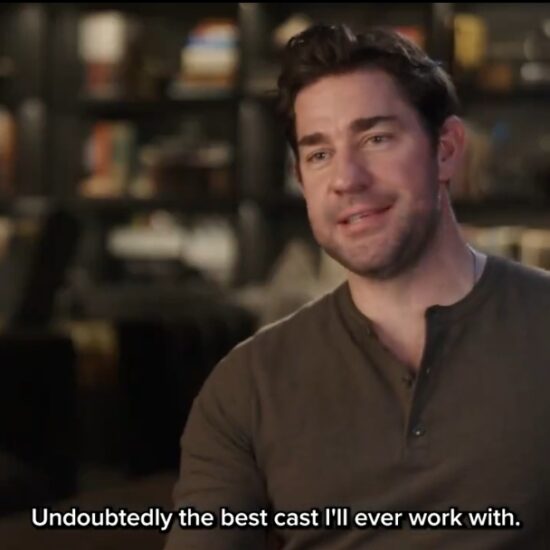
Their decision, which could take months to reach, will represent a landmark moment — and a possible constitutional crisis — whether they uphold the narrow vote or reverse it. A Tuesday editorial in the daily Haaretz called it “the most important Supreme Court hearing in Israel’s history.”
The moment, which arrived despite efforts to negotiate a last-minute compromise, marks a shift in the tumultuous, divisive battle over the conservative government’s campaign to remake Israel’s judiciary. Following eight months of near-weekly street protests, strikes and road blocks, the issues are now distilled into legal arguments over the division of powers in a country with no written constitution and little legislative oversight of government actions.
The court has effectively been asked to judge its own fate by petitioners who claim the government vote was a power grab at the expense of judicial independence. Specifically, the 120-member parliament decided by a four-vote margin to eliminate the court’s ability to rescind government actions that it deemed “unreasonable.”
Whichever way the court rules, the prospects for a crisis in governance are high as some key ministers have said they will not obey a ruling that reverses their July vote to trim the court’s powers of judicial review. Even Prime Minister Benjamin Netanyahu has refused to clearly say he would comply.
If the court strikes the law down, it will be the first time it has reversed a legislative change to a “a basic law,” a protected category of statute that is equivalent to a constitutional amendment. If the court upholds the action, critics say one of the few checks on government power would be eroded.
“The constitutional crisis is already here,” Tzipi Livni, a former justice minister and opponent of the judicial changes, said at a mass rally outside the court Monday night.
The controversy has wreaked havoc on Israeli stability, causing the currency to drop, investors to flee and a split in military ranks that led commanders to warn of a readiness crisis in parliamentary testimony.
Demonstrators filled central in Jerusalem the day before the Supreme Court session, pouring out of the train station and packing the streets around the court, the Knesset (as the parliament is known) and the prime minister’s office. Police pushed back on their attempts to surround the court Sunday.
Some protesters camped near the court, and by the time the session began Tuesday, demonstrators had returned in swelling numbers. Amid a heavy police presence, the crowd beat drums and blew horns.
The hearing began with extra security around the court building and inside. The government is presenting its arguments first, followed by lawyers for opponents.
“Who will ensure that politicians act reasonably?” Supreme Court President Esther Hayut asked one of the government lawyers.
Attendees packed into the narrow hearing room, among them Amit Becher, the head of the Israel Bar Association and one of the petitioners against the judicial law.
“The struggle is long but in the end democracy and Zionism will win,” Becher said Tuesday on X, the social media platform formerly known as Twitter.
Supporters of the law were also out in force, both at the court and online.
“The hearing is a fatal blow to democracy and the status of the Knesset,” Justice Minister Yariv Levin said in Facebook post. “The people are the sovereign, and their will is expressed in the basic laws enacted by the Knesset.”
The critiques illustrated a pervasive split in how Israelis view the high court. The right denounces the court as an elitist, leftist, secular institution that has acted as an obstacle to government policies that it says reflect the will of the voters.
The left sees it as one of the last democratic pillars, a guardian of minority rights.
Netanyahu was not at the court Tuesday, instead convening an unusual session of the full cabinet, a meeting that included his chief legal adviser.
The prime minister has reportedly spent recent days in search of compromise that would head off the need for a controversial court ruling, or least postpone it. Rumors swirled Monday that Netanyahu was trying to enlist the support of President Isaac Herzog for a deal in which the “reasonableness” legislation would be watered down. No agreement was announced before the hearing began, although Israeli media reported that attempts to find a compromise were continuing.
The prime minister’s office declined to comment.
Rubin reported from Tel Aviv.













